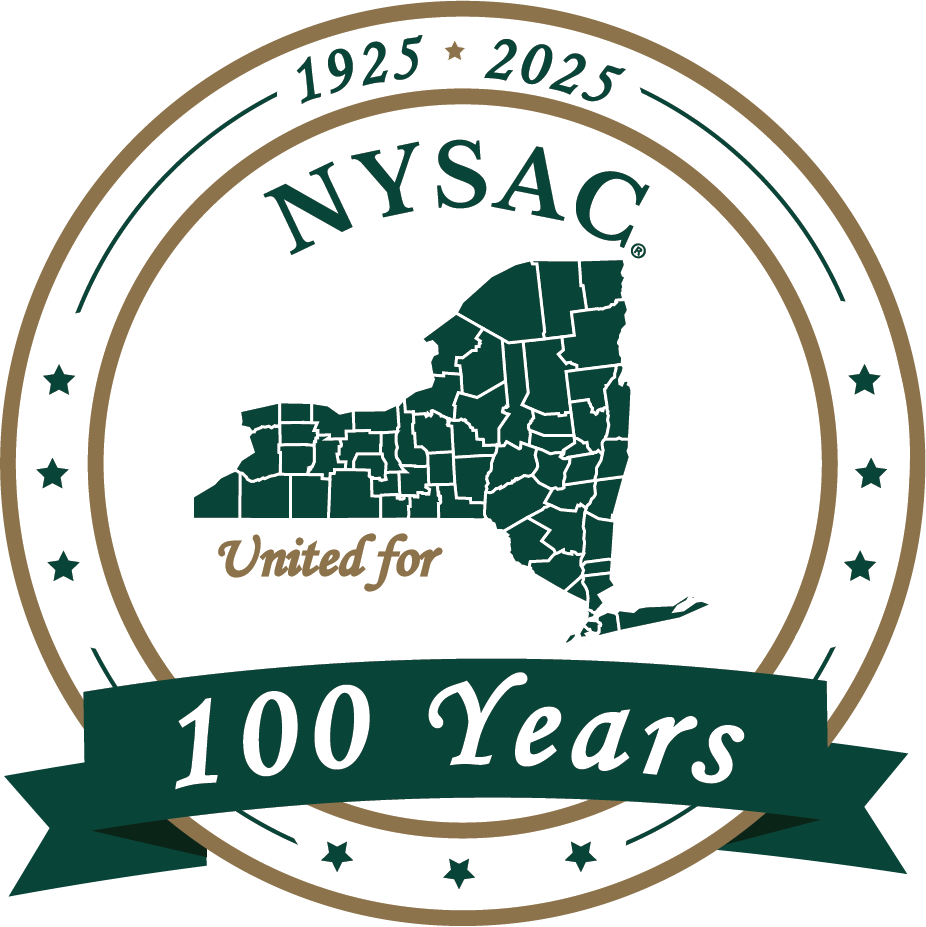Counties Serving Our Veterans
NYSAC Executive Director, Stephen Acquario, along with Ontario County Veterans Service Agency Director Jeremy Marshall, testified before the NYS Assembly Veterans' Affairs Standing Committee on county veteran services.
The legislative testimony covered innovative approaches that counties are already using to serve our veteran population, as well as a series of budget and legislative recommendations for the state to consider.
What Are Counties Doing to Support Veterans?
In Albany County, the annual Capital Region Stand-Down is just one of the many efforts to connect veterans to services. Stand-Downs are collaborative events, coordinated between local VAs, government departments, and community agencies that serve the homeless. The Albany Stratton VA Medical Center offers an array of programs to assist veterans in maintaining housing and stability in the community.
Dutchess County has implemented the PFC Joseph P. Dwyer PTSD Peer-to-Peer Veteran Support Program. The program brings veterans together in a secure, anonymous setting in order to help one another cope with the effects of PTSD and TBI. The program provider hired two veterans who will also participate on any veteran coalition or collaboration in Dutchess County.
Agencies in Onondaga County have partnered to form a task force specific to ending veteran homelessness. One of the partners created a full-time Outreach Case Manager position, which is held by a veteran. Staff members from the Onondaga County Comptroller's Office, as well as the Rescue Mission Director of Emergency Services, have accompanied this case manager on outreach efforts in Syracuse.
Nassau County has created a special program to assist veterans who have violations or Notices of Liability returnable to the Nassau County Traffic and Parking Violations Agency (NCTPVA). Starting October 24th, NCTPVA holds a monthly hearing session dedicated to assisting veterans and active duty military members with resolving these claims.
County Recommendations to NYS for Providing Veteran Services:
- Share the DD-214 Forms with counties.
- New York State Division of Veterans' Services:
- Consideration should be given to the present structure of state and local veterans service officers and their respective duplicative missions. Perhaps state resources would be better allocated regionally, and a portion of the savings be provided to county veterans service offices who have a higher percentage of successful placement in federal and state benefits.
- Expand Veteran Court availability throughout the state.
- Expand the definition of a “veteran” to include Reserve/ National Guard members.
- Authorize local governments to allow veterans to receive exemptions from paying hotel/motel occupancy taxes.
- Expand the discount for hunting and fishing Licenses
- Expand the discount on state park entrance fees
- The State should create a veteran green energy jobs program to train and link veterans with sustainable, environmentally friendly jobs to meet the goals of the Climate Leadership and Community Protection Act.
- Improving coordination with SUNY, CUNY and county community colleges could improve job replacement and recruitment options for veterans. These goals can be met by providing more state funding to current programs done by county veteran offices and workforce training centers, as well as continue to increase amounts placed in the State's Hire a Veteran credit program.
- Local Sales Tax Exemptions on Vehicles for Veterans Who Are Partially Disabled.
- The State of Georgia offers a sales tax exemption on vehicles for veterans who are verified by the VA to be 100 percent totally or permanently service-connected disabled. The state should consider providing municipalities with the flexibility of enacting at local option, this sales tax exemption.
- Local Sales Tax Exemption for Vehicle Purchase/ Adaptation.
- Some states provide a disabled veteran who receives a VA grant for the purchase and special adaptation of a vehicle to be exempt for paying the state sales tax on the vehicle. NYSAC would recommend that the state provide this benefit as well as allow counties to enact similar local laws to provide this benefit as well.
- Veteran Trust Fund
- In 2010, Saratoga County created a Veterans Trust Fund. The Trust Fund was established to accept donations and make disbursements to Saratoga County Veterans and Veteran's organizations in need of assistance. The fund provides grants to Saratoga County veterans or their families for training, education, health care, housing assistance and essential services and for the benefit of groups, organizations, programs, and projects dedicated to the welfare and support of Saratoga County veterans. Donations to the Fund are tax deductible, and all funds stay local.
- The Trust Fund was created with assistance of a local benefactor who donated seed funding. The fund is supplanted with donations and fundraisers such as the “Revolutionary Run for Saratoga County Veterans Trust Fund.” The state should consider providing counties who create Trust Funds at local option a one-time seed fund equal to $1/ per veteran as of the last U.S. Census. This targeted investment will help aid the continued operational success of the Trust Fund.
- This is one example of how the trust fund could be used: During a recent survey of county veteran service agencies, respondents indicated that veterans, particularly in rural areas of the state, often have difficulty obtaining transportation for medical, doctor, and veteran service appointments. Establishing a trust fund with a private/public partnership model to assist veterans with transportation costs can help ease the burden of those trying to attend veteran services.
- The trust fund can also be used to create a database of contractors to help veteran related projects. In order for counties to help spearhead veteran construction projects, initial seed funding is needed to reimburse contractors and then additional fundraising efforts would supplant the resources used to compensate contractors.
Contact Us
New York State Association of Counties
515 Broadway, Suite 402
Albany, NY 12207
Phone: (518) 465-1473
Fax: (518) 465-0506

